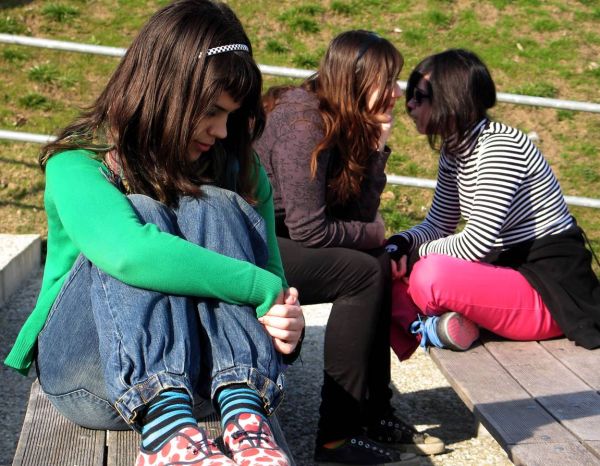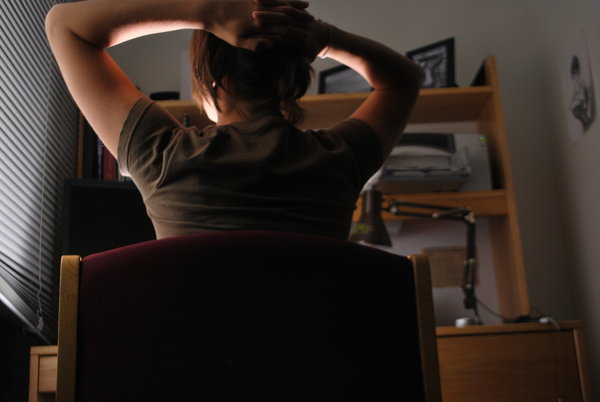
Some people get nervous in situations where they have to interact with people for example in an interview, a meeting or a completion. They start panting and get anxious about how they look what will they say or who all will they meet. Such people are suffering from a condition called social phobia or social anxiety disorder. If not checked, this disorder can lead to serious complications. The symptoms of this condition can be seen at an early stage, right from teenage. However, there are cases where it can develop at a later stage. It is best to take medical help in order to avoid conditions like depression or panic attack.
Causes
Social phobia can occur due to various reasons. There are three main causes such as heredity causes, environmental causes and neurological causes. In teens, it can develop due to negative experiences, environment or even genetics.
1. Heredity
Children of parents who suffered from social disorder are more prone to this condition. This is because of the genetic code they receive from the parents. However, the condition may not last for life and can be treated at an early stage.
2. Environmental
Children are vulnerable to the environment where they live. They easily acquire behaviors, values and beliefs, even those that are not good for them. When a child grows up in a situation where he is restricted from all social activities he may develop social phobia.
3. Neurological
In certain people, the chemical imbalance of serotonin in the brain can lead to this disorder. In such cases, even a normal situation can become very frightening to the person.
Symptoms
If you are shy and do not want to face the public on certain occasions does not always mean that you have social phobia. There are a lot of other physical, emotional and behavioral symptoms that show that a person is suffering from the disorder.
1. Emotional symptoms
Emotional symptoms include anxiety and excessive self-consciousness in everyday situations, severe worry about an upcoming event much ahead of it, extreme fear of being judged and watched by others, fear of acting in ways that can cause embarrassment and fear that someone will see you getting nervous.
2. Physical Symptoms
Physical symptoms include blushing and red face, shortness of breath, nausea, upset stomach, shaking, tightness in chest, sweating and feeling dizzy.
3. Behavioral Symptoms
Behavioral symptoms include staying away from social situations and hiding from others, taking a friend with you wherever you go and in certain cases drinking to calm the nerves before any social situation.
Diagnosis
Diagnosis is usually based on the information provided by the parents. The disorder usually shows itself during puberty and can become chronic if not checked in time. It can lead to other complications such as depression and stress. Other signs of social phobia are averted gaze, moist hands and blushing etc.
Treatment
1. Behavioral therapy
This method is used for modifying and gaining control over unwanted behavior. The person will learn to cope with various situations by being exposed to them. It gives the person a sense of control over his life.
2. Cognitive therapy
This treatment is very effective in diverting harmful and unproductive thought patterns. The person also learns to distinguish between realistic and unrealistic thoughts.
3. Cognitive-behavioral therapy
This is a combination of the above mentioned therapies and is quite beneficial for the rest of his life.
4. Relaxation techniques
The techniques help the person cope with different kind of stresses and reduce the physical symptoms. Some of the techniques are breathing and re-training etc.
5. Hypnotherapy
The therapy is used for reprogramming the subconscious programs that are responsible for the phobia. The programs help to reduce the symptoms too.
6. Neuro-linguistic programming
It is a practice and study of creating reality. It greatly helps to reduce the symptoms.
7. Energy psychology
It is one of the best treatments for this phobia because it is considered to be effective, safe and fast. There are various advantages of this treatment like quick change of behavior, fast recovery and enough relaxation etc.
Prevention
There are a lot of things you can do to prevent social phobia. The most important thing is social interaction. Make a lot of friends and mingle with all of them. Talk to them and try to help people who are in need. Always be confident. Be yourself and do things without having any fear. There is no need to be self-conscious. Act and do things in a normal way. Do not try to imitate others.
Frequently Asked Questions
1. How often does the problem arise?
People suffering from this condition may experience the problem on most occasions, where they have to mingle with a group. By using one of the therapies such behavior can be controlled easily if diagnosed at an early stage.



